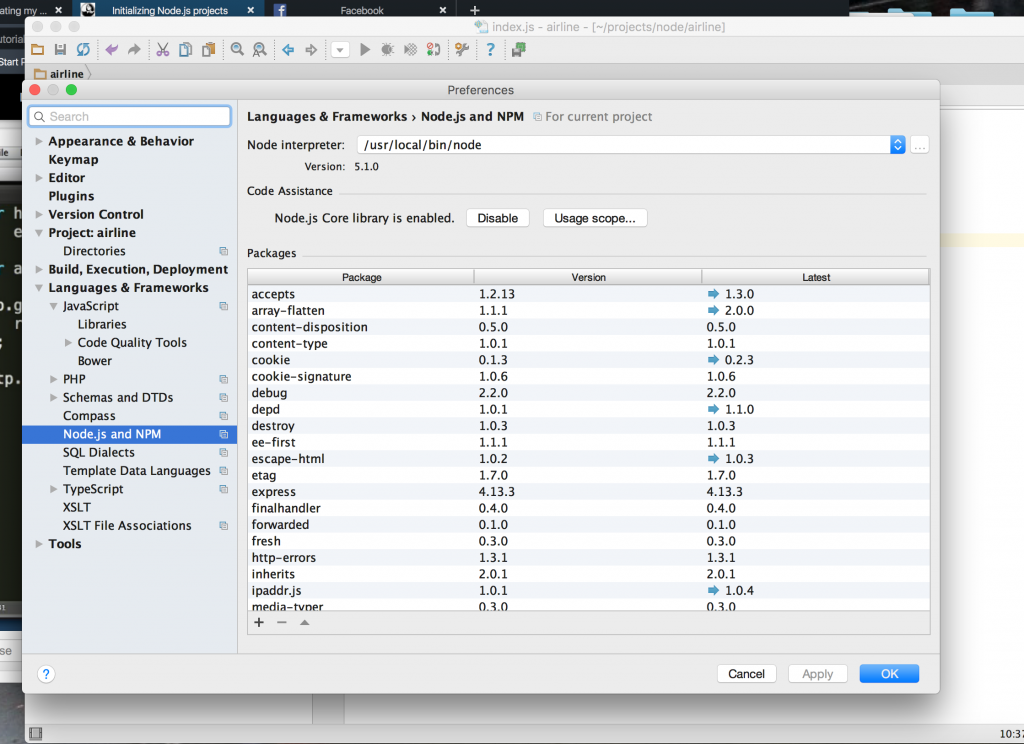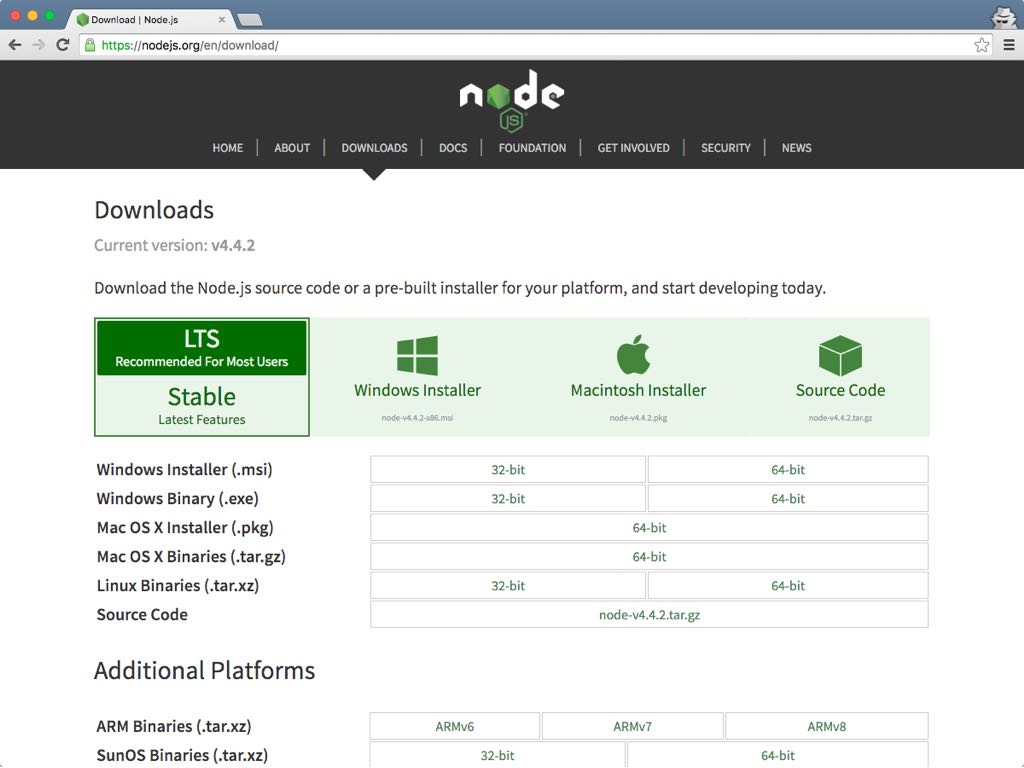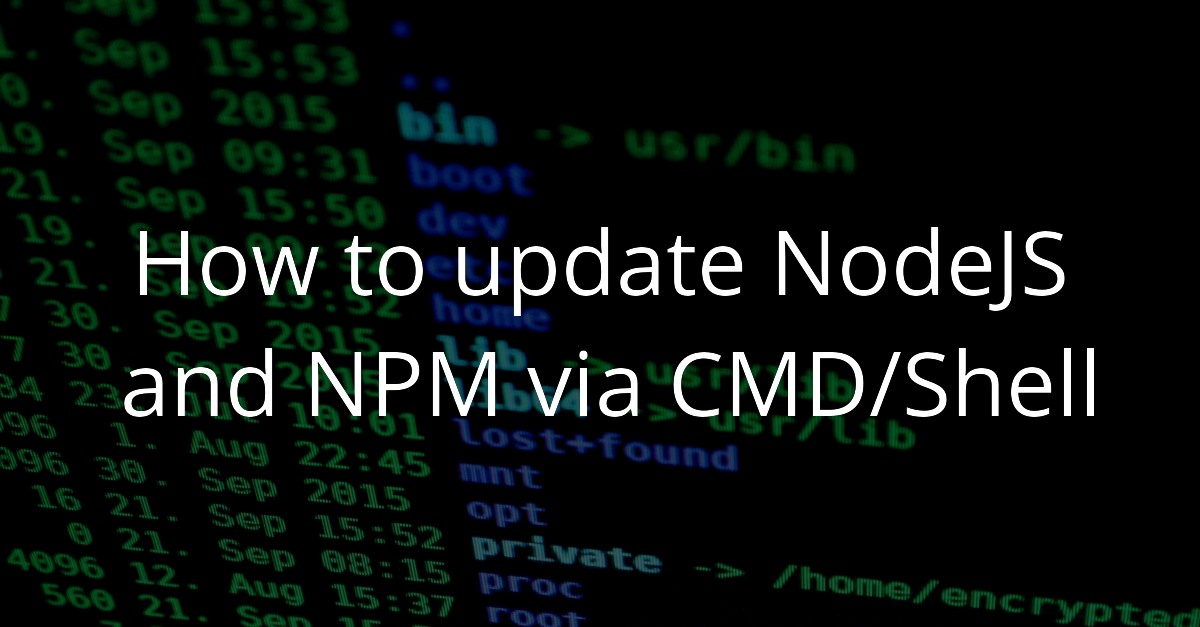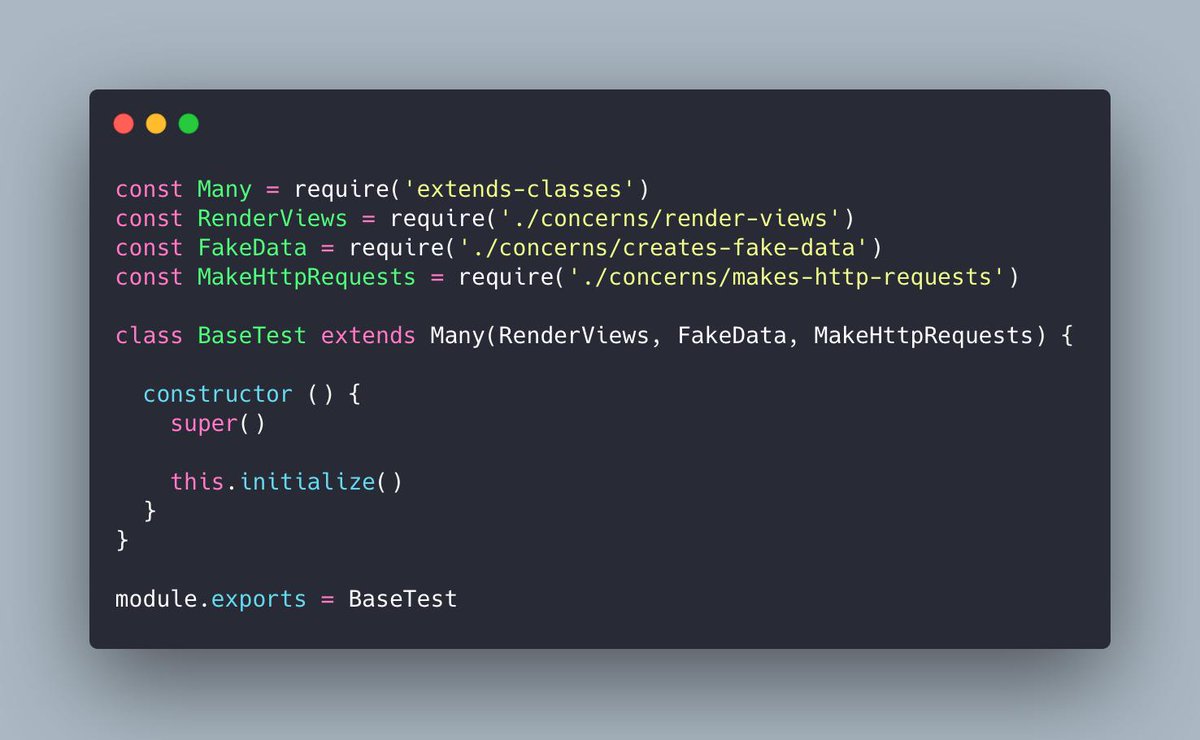
sudo mv /opt/local ~/macports Warning: Broken symlinks were found. May want to temporarily move them out of the way, e.g. You don't have to uninstall them, but you XQuartz can be updated using Homebrew-Cask by running brew cask reinstall xquartz Warning: You have MacPorts or Fink installed: /Users/Rick/.rvm/bin/port, /opt/local/bin/port This can cause trouble.
Brew update node js install#
Please install XQuartz 2.7.9 (or delete the current version). Thanks! Warning: Your XQuartz (2.7.5) is outdated. If everything you use Homebrew for is working fine: please don't worry and just ignore them. Please note that these warnings are just used to help the Homebrew maintainers with debugging if you file an issue. You can choose to fix any other reported issues now or do it later.
Brew update node js update#
You may need to install or update xQuartz as Brew will hate you if you don’t.

Depending on your version of Mac OS, Brew might already be installed.

It will then prompt you for your Mac password. Open a command window and type the following command. Change the ownership of your /usr/local directory to avoid any issues with Brew later.
Brew update node js how to#
Ready to get started? Here’s how to set up your first server in a few simple steps: To better understand the backing behind the Node movement, here’s a short list of websites that currently use it.

If you’re unfamiliar with Node.js or Express, the previous links will give you an overview of the products. So when something comes along that makes creating a server fast and simple you got to fall in love with it. Hopefully you found this post helpful, if you have any questions you can find me on Twitter.Anyone who has spent any time developing enterprise Java applications knows what a time-consuming process it is just to create and configure an application server. So to install the arm64 version of node just run: brew install node since our homebrew install is arm64 any bottles installed from it are also arm64. zshrc or source it ( source ~/.zshrc) so you can run the brew command from anywhere in your terminal. Now either open a new terminal with your updated. If you don't use zsh as your shell then adjust that last command accordingly cd /optĮcho "export PATH=/opt/homebrew/bin: $PATH" > ~/.zshrc

Below are the commands to create that folder, set the perms of that folder, then install homebrew and add it to your path. Now, we're going to follow homebrew's recommendation and install homebrew to /opt/homebrew. Open a Terminal and veryify you are not in x86 emulation mode: arch 1 min read Step 1: Install arm64 Homebrew


 0 kommentar(er)
0 kommentar(er)
